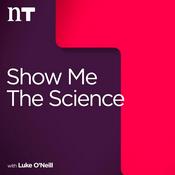314 episodes
- Identical twins on trial for murder in France have left forensic experts unable to answer the question of which one pulled the gun’s trigger. With both having the same DNA, it got the Unexpected Elements team thinking, when do identical twins cease to be identical?
First, we look at how scientists have been confronting the possibility that they might soon be able to create an evil twin to life itself - mirror life. Also, we hear why the ‘Tatooine planets’ which orbit twin stars are so rare in our galaxy.
We’re then joined by professor of developmental psychology Nancy Segal, who explains why prosecutors should be able to distinguish between the French twins on trial. Plus, we hear how African farmers are struggling with a lack of data on pre-harvest crop loss.
And finally, why gorse flowers smell like pina coladas, and how the use of DNA evidence in court can still come down to interpretation. That’s all on this week’s Unexpected Elements.
Presenter: Marnie Chesterton, with Kai Kupferschmidt and Michael Kaloki
Producers: Ella Hubber, with Lucy Davies, Sophie Ormiston, Imy Harper and Tim Dodd - K-pop fans in Taiwan have been turning to the God of love in the hope it will boost their luck in getting concert tickets. It got the Unexpected Elements team thinking, are some people just lucky?
First, we look at how music resonates in the brain and why listening to it live can feel more emotional. Also, can we measure how lucky we are? We look at a possible formula, and how you can increase your chances of striking on a lucky event.
We are then joined by professor of marketing Marco Bertini, who explains the wild west of dynamic pricing and gives us some tips and tricks along the way. Plus we hear about Kenya’s ambitious plans to integrate traditional medicine into its health system.
And finally, why we dance when we pee and the Great British art of queuing. That’s all on this week’s Unexpected Elements.
Presenter: Marnie Chesterton, with Phillys Mwatee and Imaan Moin
Producer: Margaret Sessa-Hawkins, with Ella Hubber, Lucy Davies, Imy Harper and Tim Dodd - The Winter Olympics has the Unexpected Elements team looking into some of the incredible science behind the sports. First up, the tale of India’s lone luge pilot: how did using old train tracks as sled runners give him a competitive edge? Then, we look at the physics behind a cheating scandal that has rocked the ski jumping world. Scientific studies tell us exactly how much difference changing a single stitch in a costume can make.
Did you know there are different types of ice? Professor Christoph Salzmann has discovered three of them, and tells us what makes them unique. Plus dinosaurs, disease, and whether we laugh with an accent. All on this week’s Unexpected Elements.
Presenter: Marnie Chesterton, with Chhavi Sachdev and Tristan Ahtone
Producers: Margaret Sessa-Hawkins, with Lucy Davies, Imy Harper and Tim Dodd - Are You Dead?
That’s the name of an app that’s gone massively viral in China. Every two days, you click a green button to confirm you’re alive and well – but if you miss it, an emergency contact is alerted.
The app is aimed towards those who live alone, so it’s got us contemplating the science of connection and loneliness. First, we take a look at the most isolated trees on Earth and how they act as important recorders of history. We also discuss NASA’s space probe Voyager 1, and how we can connect with a device that’s 25 billion kilometres away from us.
We’re joined by glaciologist Liz Morris, who shares what it was like to do research far from civilisation, in Antarctica.
Then we reunite with a species that we thought was lost for ever, and answer an important question: just how big can spiders get?
All that, plus many more Unexpected Elements.
Presenter: Marnie Chesterton, with Candice Bailey and Ogechi Ekeanyanwu
Producers: Ella Hubber, with Lucy Davies, Imy Harper, Tim Dodd, Sophie Ormiston and Margaret Sessa-Hawkins - After the leaders of Japan and South Korea ended their summit with the two participating in a drumming duet, we’re marching to the beat of our own drum and exploring some rhythmic science.
First, we look at nature’s drummer, the woodpecker, and why their pecking doesn’t give them a concussion. We also discuss how the rhythm of your brain waves impacts your sense of ownership over your own body.
Then, we’re joined by Daniel Levitin, author of Music as Medicine, who tells us all about using rhythm in the treatment of neurological conditions.
Next, we hear about a new claim to the title of the world’s oldest computer, and how flying affects your body’s natural rhythms.
All that, plus many more Unexpected Elements.
Presenter: Anand Jagatia, with Sandy Ong and Edd Gent
Producers: Sophie Ormiston, with Ella Hubber, Lucy Davies and Imy Harper
More Science podcasts
Trending Science podcasts
About Unexpected Elements
The news you know, the science you don’t. Unexpected Elements looks beyond everyday narratives to discover a goldmine of scientific stories and connections from around the globe. From Afronauts, to why we argue, to a deep dive on animal lifespans: see the world in a new way.
Podcast websiteListen to Unexpected Elements, Futureproof with Jonathan McCrea and many other podcasts from around the world with the radio.net app

Get the free radio.net app
- Stations and podcasts to bookmark
- Stream via Wi-Fi or Bluetooth
- Supports Carplay & Android Auto
- Many other app features
Get the free radio.net app
- Stations and podcasts to bookmark
- Stream via Wi-Fi or Bluetooth
- Supports Carplay & Android Auto
- Many other app features


Unexpected Elements
Scan code,
download the app,
start listening.
download the app,
start listening.













![Podcast Cosmosis [Formerly The UFO Rabbit Hole]](https://ie.radio.net/podcast-images/175/the-ufo-rabbit-hole-podcast.jpeg?version=c4cfeed14331265219e0263fd62be755644a8cf4)


















